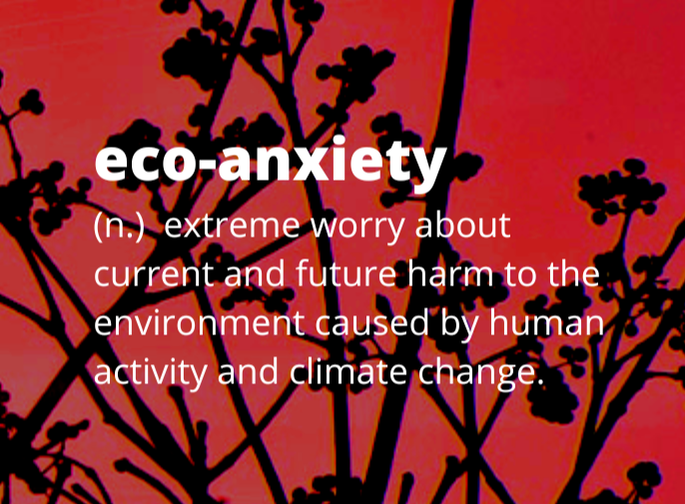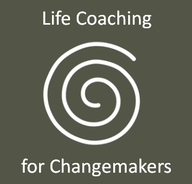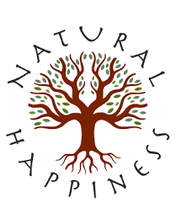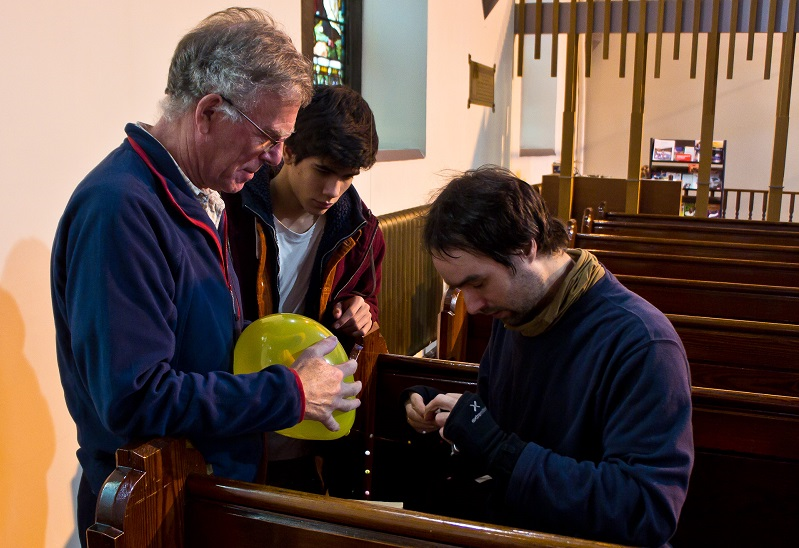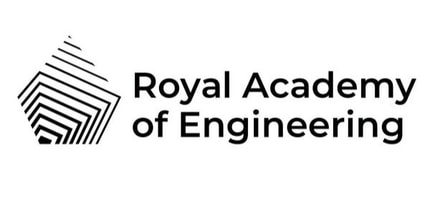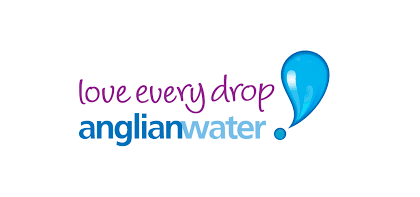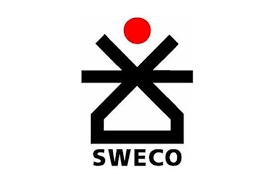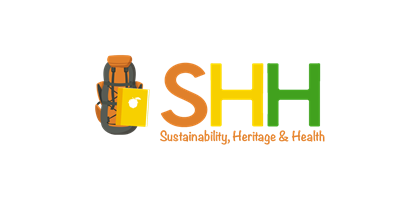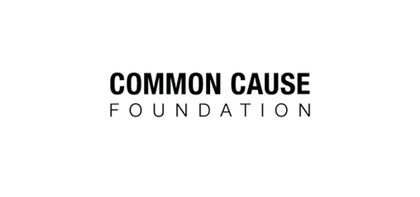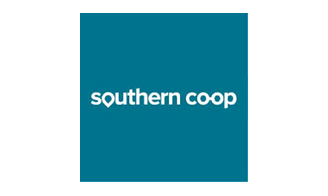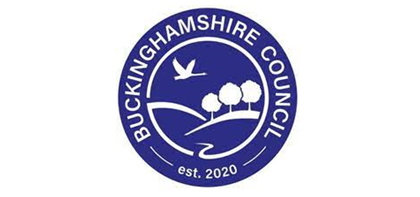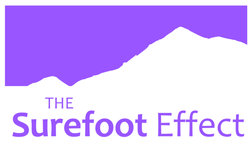Eco Anxious Resilient Peer SupportSurefoot’s Eco Anxious Resilient (EAR) Peer Support project developed free-to-access peer support tools, training and eco-anxiety workshops for campaigners, activists and others experiencing eco-anxiety. We continue to share insights from people who are managing to safeguard their own mental and emotional wellbeing, while also constructively engaging in the fight against global warming and biodiversity loss. Peer support has a long and proven track record of authentic help for people who want to connect into support networks with others who understand their struggles and can share ideas and techniques to help them stay resilient. Please explore and share our resources and insights and get in touch! Peer support training and resourcesA Daily Reading for EarthDip into our selection of readings - there to inspire and help you take one day at a time. This is a fledgling selection of short readings born of compassion and gratitude for all people whose lives are guided by their fundamental love of Planet Earth. People who identify as 'eco anxious' have shared their experience and the sources of their personal resilience. We aim to gather a new, original reading for every day of the year. Please help us by sharing your thoughts. If you feel inspired to write a page based on keeping well and active in an age of climate and nature emergencies, we would be pleased to hear from you. We're looking for a maximum of 380 words for each reading and it must be an original piece written by the person submitting it. All entries are published anonymously. For more information, or if you have any questions, email [email protected]. Peer support insightsProject background - why now?This project is based on the assertion that processing our eco-anxiety and climate grief can lead to personal empowerment. The focus is on peer-to-peer support and training in the use of self-care techniques developed for general mental health well-being. In 2021, Glasgow witnessed its largest ever public display of unity during the COP26 UN Climate Change conference. There was a life-affirming, intergenerational atmosphere of solidarity around climate justice. But the high hopes once again rapidly dimmed to a glimmer behind thick layers of broken political and corporate promises, greenwashing, apathy and hellish statistics about species extinction, pollution and concentrations of CO2 in the atmosphere. In response, Surefoot and environmental campaigner, Audrey Baird joined forces - Find out more Contact us and keep in touchKeep updated on the EAR Peer Support project via Surefoot’s Facebook, LinkedIn or Twitter. You can also sign up to Surefoot’s newsletter. Additional support - useful links
Eco-anxiety definition within image - Source Oxford Languages
Improving energy efficiency and thermal comfort in community spaces, Surefoot working in collaboration with HeatHack supported by an Ingenious Public Engagement Award from the Royal Academy of Engineering. For this project, a small team of people from across Surefoot and HeatHack are working together to deliver a programme to help UK-based churches and community buildings to understand what a net zero future means for their premises. It helps people understand energy efficiency and thermal comfort in difficult buildings, as well as inspiring them to think about how their buildings should be used in their local contexts and how to make this change happen. APPLY NOW! We are recruiting community groups and volunteer engineers NOW! To apply, please use these forms. Project Overview - important but challenging buildings Overall, the project will deliver the programme to 40 small groups involved in running church and community premises from across the UK. These important community spaces are difficult to move to Net Zero. They are some of the hardest buildings to manage because they are traditionally built, often listed, and not designed to modern heating requirements! This Surefoot project has two main objectives:
Surefoot has been awarded £29,600 for this project. Surefoot associate Jean Carletta had the inspiration for this project and successfully bid for the opportunity with the Royal Academy of Engineering. Project Process HeatHack’s volunteer engineers work with church and community groups to help them understand the basic principles behind thermal modelling and apply them to their own spaces. The programme combines some technical learning and engineering investigation of the premises and heating and ventilation systems with Surefoot’s hallmark facilitation approach. Under the engineers’ guidance, each group completes four two-hour exercises in their buildings over the course of a year. They will also be equipped with devices to capture temperature data from their buildings. Participants will explore how heating systems work, heat loss, thermal comfort and possible future changes to their buildings in the drive to Net Zero. Importantly, the process includes how best to bring people along with enabling change as the groups then plan and hold a community consultation showcasing their learning. This project will change the futures of some important buildings and create a culture in which communities remember to seek out and value the engineers who live among them. Open content materials will be produced for wider circulation and use. More about HeatHack
HeatHack is a group of volunteers working on an interesting question: how can we make Scotland’s community spaces comfortable on less energy use? Over the years, HeatHack has developed techniques for:
HeatHack’s work empowers the volunteers who manage community buildings to have the right conversations with the professionals they engage, leading to better building outcomes. The HeatHack website contains information about this programme. If you want to know more, you can use the contact form, or email us and ask us to give you a call. The Surefoot Effect CIC is a Community Interest Company that helps communities, businesses and governments put sustainability and resilience at the heart of what they do. Our approach encourages people to explore their emotions, motivations and behaviours and to make positive changes for themselves and their communities. Carbon Conversations at an enterprise
The eight participants came from three different sites of DuPont Nutrition & Biosciences. Pam Candea and Tony Herrmann from Surefoot conducted two days of facilitator training preceded by a one day session where the group were participants in an abridged version of the 6 Carbon Conversations sessions at DuPont’s office in Copenhagen. One year after the final training, Surefoot interviewed those available from the group of trained facilitators to determine the impact Carbon Conversations has had on the organisation. It was pointed out by the facilitators that it was valuable and rewarding to engage colleagues in Carbon Conversations as well as it required dedicated, persistent efforts to run the first set of workshops. This full report focuses on the practical set-up of Carbon Conversations and the outcome for DuPont based on the interviews. The set-up within the company The facilitators recruited colleagues, prepared for each session, conducted and evaluated the completed series of workshops with input from the participants. At Brabrand (one of the three sites) three facilitators worked together to deliver the Carbon Conversations workshop sessions for eight participants. The sessions were conducted during work hours at the company. In between the sessions, the facilitators met to organise the work-sharing and gather additional material for DuPont and Danish contexts. The group at another site, Grindsted, went through the planned six sessions, with 4 - 8 people at each session with two facilitators present. In February 2020, the facilitators at Brabrand started a second group with 10 new participants. Outcomes at DuPont Carbon Conversations is viewed as one element of several environmentally friendly activities, and has sped up processes in certain areas. The setup of Carbon Conversations workshops, and for the company this unusual way of running meetings and handling topics, has brought in new ways of viewing climate challenges. The sessions have illuminated the complexity of climate change challenges, and that there is not always one answer, one action, to solve the challenges. In answer to what was the best part of being a facilitator, some of the answers were: “To use my personal passion with others” “It gives me more energy, even it has been hard work” “It’s incredible rewarding to bring new thoughts to people” “The response has so far been solely positive” “I feel we are creating a movement.” After running the planned six sessions, the facilitators at one site created a seventh session to make an idea catalogue of possible solutions derived from the participants’ ideas. A sustainability group has been formed since starting the Carbon Conversations. This group works with initiatives like solar panels on the site, use of ceramic cups instead of disposable cups, and letting the grass grow in certain areas to enhance the biodiversity. Using Carbon Conversation as tool in harmony with the company’s set of values and the actions it takes can be a driving force and positive experience for members of staff: “I am glad that the company is now taking it into the whole organisation. It is based on the support of the three sponsors, three leading units in the company. In the big ‘helicopter view’ many companies have a noble set of values. To me, it is important that the set of values is being converted in reality. I am proud of being a part of DuPont which is taking action.” Indirectly, Carbon Conversations are also affecting employees who have not been participating at any of the sessions: Suggestions on environmentally friendly activities from people in DuPont who haven’t even been participating in the workshop.” Employees have heard about the workshops via colleagues, intranet, and morning meetings where the facilitators have been presented.
The Project
After leading activities for a student-focused energy-saving campaign at the University of Edinburgh, Pamela Candea and Euri Bartolome-Vidal from Surefoot and three other colleagues prepared a 5- week energy-saving project based on the method "face-to-face engagement" for one high-energy consuming building on campus. The volunteers, with support from our team, managed to offset the costs of the pilot in just 8 weeks, saving £1,480 of the £1,250 worth of investment and 9.2 tons of carbon dioxide (TCO2) for the same period. This would translate into annual saving of £8,880 and 55.2 TCO2. The success of the pilot led to a roll-out of the project to 20 more buildings for one year, saving a total of £80,000. It eventually led to the set-up of the Sustainability and Social Responsibility Department of the University of Edinburgh, currently managing a budget of £3M. The two main aspects that made this project successful were:
We gave them the opportunity to come up with ideas by asking them to help us. We also offered to help staff speak with the different stakeholders or communicate the changes widely within the department to reach out to more people. Staff wanted to take part in the projects because they wanted to help - so asking for help was essential. They also led activities because they found it interesting - it was a way for them to learn by doing research. It was also a way for them to improve their working environment. This is work that can take place in different work environments, government buildings, companies, both large and small and any venues where there is a potential to save energy and its associated savings on bills and carbon emissions.
Surefoot was engaged by The Scottish Government to facilitate the series of Carbon Conversations workshops with 2 groups of 8 people in the Edinburgh and Glasgow government offices comprised of a people across a number of departments. Participants also took part in an online evaluation.
Over 6 sessions of 2 hours each, the participants were guided through topics related to climate change and on how to make positive shifts in attitudes and actions within the workplace. The Carbon Conversations offer a non-judgemental space to explore climate change and what it means for attendees both at home and at work, to work through why we can't always realise our intentions, and to create an action plan. This includes focus on: • Gaining a comprehensive grounding in all areas of a 'carbon footprint' • Understanding wider context of climate change and sustainability • Understanding why behaviour change can be difficult and ways to tackle barriers • Reducing your own carbon footprint • Create recommendations and/or an action plan to implement in the workplace. To learn more about our Carbon Conversations methods, please visit Carbon Conversations in the Community and Carbon Conversations for Businesses and Larger Organisations. As our report Carbon Conversations Programme, 2013-2014, Evaluation and Recommendations states, all participants recognised the benefits of taking part even with high levels of pre-existing knowledge about climate change. The handbook, given out to participants, was a source of knowledge for them: “Although I am keenly interested in this area, I learnt a lot of new material in an accessible way. I like the holistic approach, not least which includes the psychological aspects.” “Great introductions and exhaustive list of literature. I also found the case studies very useful as well as interesting to read.” Some participants highlighted facilitated group work as a positive way of dealing with the topics: “Very useful and reassuring to discuss with others and find out that everyone faces similar issues and personal dilemmas.” “The group facilitators were very enthusiastic but at the same time realistic. The atmosphere in the group was good.” We are pleased that the Carbon Conversations moved both the participants’ attitude as well as their actions. As this extract from our conclusion shows: “Throughout the attitudinal survey we can see some significant changes to both how participants were feeling about the various topics and issues raised in the programme, as well as actions they are now taking. "For example, there was a 35% movement towards participants being in full agreement with the statement ‘It is better to avoid using products that have a harmful effect on the environment’ and 35% more participants giving the statement ‘I generally buy used or ethical/sustainable products and try to recycle or reuse old products’ a score of eight or more, where 1 = totally disagree and 10 = totally agree. "Other significant movements occurred within the Energy, Travel and Food sections as well. Within Ethics and Responsibility where before the programme only 33% of participants totally agreed with the statement ‘We are all responsible for tackling the impacts of global climate change’, 85% totally agreed with this statement after the programme.” Read more about outcomes and feedback in the document: Carbon Conversations Programme, 2013-2014, Evaluation and Recommendations
Climate Conversations with the public Feedback on the 2 projects revealed that a series of Climate Conversations is an effective way to better understanding views on climate change and also a useful method to encouraging interest, awareness and action. Climate Conversations is a workshop-based approach, comprised of a 1.5-hour session that introduces people gently to climate change and how to best respond. Tackling climate change requires a shift in attitude and lifestyle at individual and collective levels. Read more about the concept and our methods for Climate Conversations A brief introduction and link to each sums up essential elements of each project: Climate Change - Public Conversations Series 2017-2018 To encourage discussions about how to reduce the emissions that cause climate change, and prepare for a changing climate, The Scottish Government initiated a series of “Climate Conversations.” Our report shows the findings from a series of Climate Conversations which Surefoot undertook with the Scottish public during 2017 and 2018, to ‘take the temperature’ of public views on climate change and on potential actions to tackle it. Ten conversations were held with non-environmentally focused voluntary and community groups across Scotland. The groups included a local community growing group, a community council, a group of mountain climbers and group of young people engaging with a local authority. The conversations were held in cities, towns and with an island community. The conversations included discussion of 9 low carbon scenarios of what life might look like in Scotland in the year 2030. The scenarios covered Transport, Energy, Food and Purchasing. A few extracts from the report: The information presented on climate change activity was for many participants familiar and was believed to be fairly well known. The information on climate change activity revealed however that there is a level of uncertainty about the role of natural cycles in climate change; this is a new finding. With respect to impacts, flooding and higher rainfall are the most widely stated manifestations of climate change in Scotland. Many participants were unable to suggest how climate change might affect the landscapes beyond the direct impacts of flooding and higher rainfall. When it comes to tackling climate change, there is some concern that some of the scenarios put too much responsibility on individuals, requiring too much time and commitment, and a feeling that businesses and government should do more to make acting on climate change easier and attractive for individuals. Most participants said in their feedback that they might take action as a result of the taking part in the Climate Conversation. Notably one respondent spoke about climate change to over 100 people. They spoke at a conference, and was inspired by their participation in the Climate Conversations to incorporate climate change into their presentation. This suggests there may be potential to engage ‘non-climate change’ opinion formers and influencers in climate conversations with significant benefits. Some participants identified positive possibilities and expressed hope for the future: “Blue Planet II has talked about global warming and temperature rises in the ocean. Global action is being taken to combat this. If people and countries take action on this information maybe it won't be so bad.” “Becoming more involved in community activism, both generally and in particular regard to mitigating the adverse effects of climate change.” “Find out more about climate change and what realistic/simple changes I can make to my daily routine that will make a positive difference.” Read our full report ‘Climate Change - Public Conversations Series’: Climate Conversations, 2017-18 Climate Change - Public Conversations Series 2016
During the ‘Climate Conversations’, initiated by The Scottish Government in 2016, 90 members of the general public participated in conversations. Each conversation was facilitated to give all participants an opportunity to discuss, firstly, how climate change might affect places, people and activities in Scotland, and secondly, their views on 9 descriptions of what low carbon life might look like in 2030. We recruited participants, in each of 10 locations, for each conversation, with between 10 and 6 participants attending each of the 10 workshops. Participants were selected to be typical of the demographic of the location. Our report states, the key findings are that people are generally aware of climate change as both an issue and a problem and were aware that action is necessary to tackle it. Some of the participants’ comments showed confusion between concepts and some factual inaccuracy. However, overall the majority of participants appeared reasonably well informed and were keen on taking positive actions. Regarding views on the impact of climate change, the most prevalent themes concern the impact of climate change on landscape and wildlife. The impact of climate change on humans was generally related to flooding and food supply, and almost invariably restricted to changes and affects within Scotland itself. The impact of climate change in other parts of the world having indirect impacts in Scotland - such as on imported food, migration, global economy - was very rarely mentioned. Answers on the question 'How can we reduce emissions?' often involved community-level infrastructure - and raised new questions and demand for more information: “Scottish Government says “no fracking”. So if we don't have fracking and we don't want nuclear, what have we got that’s green? We’re importing coal from Australia for heating. We're starting electric cars, but we need electricity to run them. Where will electricity come from? Windmills will blight the landscape." “What about alternative energy - wave, offshore wind farms?" “We need education to help the adults of the future make the right decisions.” Positive outcomes are highlighted in relation to the historical perspective on change and bring hope for the future: “I'm from Glasgow, and we used to get smog, so bad you couldn't see from here to that wall. They stopped that, it was caused by coal. And that's what you're ending up with: a clear sky and clean buildings and trees. I'm seeing some good!” And hope for new sources of energy: “Wave power. There must be a huge amount of energy in wave power.” “Tidal power is supposed to be good. If we can get that working…” Read our full report ‘Climate Conversations for The Scottish Government’: Climate Conversations, 2016
On this page you will gain insight into the two series of Carbon Conversations which Surefoot conducted with the Scottish Parliament Corporate Body. Workplace Carbon Conversations focus on the changes individuals can make and opportunities to reduce carbon emissions across an organisation, with the final session creating an action plan for the group’s sponsor.
It's Good to Talk! Carbon Conversations Carbon Conversations has contributed to a wider cultural change, “What we really learned and built on was the benefit of holding meetings where people can discuss things and voice opinions, not just receive information. We learned a lot about trying to understand why people behave in certain ways,” says David Fairhurst, environment performance manager at the Scottish parliament. Ambitious targets alone don’t create change, “We recognise that staff behaviour and employee engagement are key to meeting those goals,” states Fairhurst. The sessions at the parliament ran during working hours. All the participants were volunteers, which Fairhurst believes is essential, “I sat down and wrote a list of people I thought might be interested, including those in our environment management working group. I also asked office heads who they would recommend. The first group was a pilot. We aimed for a mix of participants to see how different people responded to it.” Participants reported feeling more involved, inspired and empowered, as well as more informed. As a result, several became more involved with Real Action on Climate Emissions (RACE) programme and ideas the group generated led to changes in recycling at the parliament building. “We’ve completely changed our recycling facilities in offices,” Fairhurst says. “We’ve removed individual bins and replaced them with recycling hubs to encourage people to separate their waste. Our recycling rates are now very high – around 80% – and we’ve cut our landfill waste by almost 70% over the past four to five years.” Jenny Goldsmith, member of the European and external relations committee and a volunteer coordinator for the parliament’s RACE programme concludes, “Carbon Conversations has opened up dialogue that has helped the parliament learn. It’s been part of our environmental evolution.” Read more about the case study: It's Good to Talk! Carbon Conversations Values-based change methods Pamela Candea, Managing Director and Founder of Surefoot, wrote a thesis on this work for her MSc: ‘The impact of a values-based change method on the environmental performance of an organisation.’ Her research examined the impact of a values-based change method on the environmental performance of an organisation, through the delivery and evaluation of a pilot for one group of employees. The Carbon Conversations set of workshops, designed for community work, was used in the pilot as it creates a safe and supported environment where people can access and express emotions. The ten participants from the Scottish Parliament Corporate Body provided information to calculate individual carbon footprints, completed an environmental attitudinal survey, and participated in six two-hour Carbon Conversation sessions. They took part in individual semi-structured interviews, completed an evaluation form and repeated the attitudinal survey two to four months after the sessions completed. Two senior managers were also interviewed. The data demonstrates that emotions and values are evoked during participation and that behaviour both at home and in the workplace was affected: over 150 home and work pro-environmental actions are reported completed or planned, and over 12 tonnes of carbon dioxide equivalents emissions were saved from the completed home actions alone. Analysis confirmed that Carbon Conversations’ behaviour change methods (as supported in the literature reviewed) engendered demonstrable and significant change, with indications this change will be being long-lasting. The findings and analysis confirm that values-based change methods are powerful and transformative and can impact the environmental performance of an organisation. “I see my little boy - 18 months. He is at an eco-nursery and we bring him up to hopefully love what’s around him and look after it. That’s just optimism in a little bundle.” - Participant at Carbon Conversations Graduate School of the Environment Centre for Alternative Technology and University of East London MSc Architecture: Advanced Environmental and Energy Studies 2011 Future Conversations with a community group Pam Candea’s experience as facilitator at Belville Community Garden Trust during spring and summer 2019 gives insight into the guided Future Conversations sessions and what this workshop can bring to people and organisations. The group at Belville ranged in age from people in their early 20’s through to people in their 60’s. It was mainly women but the group, which was comprised of 6-10 people each session, usually had 2-3 men as well. The group met 8 times over 3 months. A Wednesday afternoon in March was the first session, where Pam met with Geri Sinclair, Volunteer Coordinator at Belville, and volunteer Trisha Orr who took part in the facilitating, before the other participations arrived. The take off for the session was the dining area of Belville’s large catering kitchen where the project’s chef creates tasty and nutritious meals using food from Fareshare.
The group did spend time outdoors in almost every subsequent session,
taking advantage of the space at Belville:
In the wide-ranging gardens the group discussed and set up a planter for this group to experiment with their big idea arising from the Future Conversations sessions: growing vegetables especially for making soup and providing a soup kit to people to make their own soup at home from fresh locally grown ingredients. The group hope to further develop this idea to provide veg boxes in the next year and to hold gardening training sessions with intergenerational groups. The group loved the idea of the Joanna Macy Work That Reconnects (WTR) spiral, and spent some time reminiscing about dandelion memories in response to the blown dandelion image connected with WTR and embraced the steps in the process. In the honouring our pain section of the spiral, people said they felt able to express their fears for the future whilst at the same time being supported and buoyed up by the others in their group of three. There was an amazing synergistic feedback session after Joanna Macy’s “over the hedge” exercise where participants envision the future and report back. The reporting back yielded overlapping visions, with people starting their feedback with “My story builds on yours by ….” The participants created a collage of ideas about what community means, and what Belville could look like in the near future. Actions discussed during the sessions ranged across various spheres, for example: • a community growing and cooking project which welcomes everyone, no matter their capabilities, and finds a role suit to each • a project to help young people understand why destroying things, especially in parks and wild spaces, is harmful • the group committing to helping one member with a personal difficulty The group have expressed a desire to keep going and are looking at continuing to meet Wednesday afternoons to keep their soup veg plot going and to explore new concepts and to take on new actions. Geri and Trisha hope to run some permaculture sessions and to bring other practices to the group as well. One thing added to each session was poem reading from Looby McNamara, a permaculture teacher who writes about cultural emergence. Here is an excerpt from her poem Gratitude as an Attitude: …We arrive in the presence of now, The gift of the present. When we choose to view with an appreciative gaze Our mind chatter stills We are here and now and we are timeless. We are uniquely ourselves And undeniably connected.
Project Overview Anglian Water is, geographically, the largest water company in the UK, covering 27,500 square kilometres from the Humber in the north to the Thames in the south, and from Daventry in the west to Lowestoft in the east. Anglian Water serves the drinking water and wastewater needs of around six million industrial, commercial and domestic customers. The @one Alliance is a collaborative, virtual joint venture formed to deliver a large part of the Anglian Water capital investment programmes. Alliance partners are: Anglian Water Asset Delivery, Balfour Beatty, Barhale, MMB, SWECO, Skanska and Stantec Treatment. The sessions were delivered by a partnership between SWECO and The Surefoot Effect, and the SWECO engineer involved created water industry specific games and activities to supplement the standard CC activities. The Surefoot Approach Surefoot led 3 sessions (each with 2 Carbon Conversations sessions) of 6 hours each with a group lunch in the middle of the day. Sessions were scheduled to ensure maximum attendance by the very busy group individuals (8 people), and had approximately a 1 month gap between them, much longer than the usual sessions. Each session covered both home and workplace considerations and the final session focussed on action planning and recommendations for the work place. “I know now that I will include carbon cutting, just as I include cost cutting in my design.” “It is good to know there are others throughout the organisation who care as much as I do.” Anglian Water now has targets to reduce its embodied and annually expended CO2e emissions.
Update: In 2018 SWECO won an award for this initiative The premise of the project is that mental disorders are the fastest-growing category of diseases with which health systems must cope and that a high-quality education promoting emotional, social and cognitive development is widely recognized as key to successful interventions in breaking the cycle of intergenerational disadvantage. The project promoted an educational approach to foster good mental health through empathy, self-discovery and expression, creativity and innovation in pre-adolescents/adolescents and to support them in better understanding themselves and finding commonality with others. Partners created an innovative curriculum with specific competencies and methods to identify and support students’ identity formation and to address challenging behaviours and strong emotional responses. Our partners in this project were Institut IVIZ (Slovenia), Red Europea los Jóvenes importan ahora (Spain) and Unglingasmiðjurnar Stígur og Tröð (Iceland). Project insights
The project’s main goal was to connect European cultural heritage with human and environmental health. This included a free app to help you travel on our guided walking routes and a recipe book to highlight European culture, promote exercise, mindfulness, nutrition, and work towards sustainability goals. Please enjoy some of the routes and recipes! Our partners in this project are Centro de Estudios Ecológicos Abrazohouse (Spain), Innovation Frontiers IKE (Greece) and VsI Ziniu Kodas (Lithuania). Project insightsPlease visit the project’s platform where you can look up environmentally friendly initiatives around the world.
The Erasmus+ evaluators praised the project for having the ability to address the objectives and priorities set out in the Erasmus + programme guide “to design and implement effective provision for enhancing basic skills and key competencies and inclusive education, training and youth”, as well as for targeting educators to develop “new pedagogical approaches to train people in climate change and energy use.”
The first part of the project was the creation of an interactive online platform where participants can learn about different topics related to a deterioration of the global environments. Welcome to the free e-learning platform here and scroll down for access.
The second part aimed at illustrating the main themes covered in the platform with the aid of graphic novel. You’ll find the graphic novel The story of Eli. The projects are co-funded by the Erasmus+ Programme of the European Union.
This project looked at how the connections between people, place and community can create resilience in order to find approaches or tools that can be used to create a common methodology for resilience. Our partners in this project were: Etairia koinonikispsixiatrikis kai psixikis ygeias (the Society of Social Psychiatry and Mental Health) (Greece), Mobilizing Expertise (Sweden) and Volontariato Torino (Italy). Project insights
In the ALP, We worked with 2 members from 8 communities on environmental issues. The aim was to develop and pilot an approach to putting Common Cause into practice that can be replicated more widely.
You can read the full report here. General overview of organisation The Southern Co-operative (TSC) is a regional Co-operative Society based in southern England. The cooperative operates over 180 community stores and cover the following counties: Berkshire, Dorset, Hampshire, Isle of Wight, Somerset, Surrey, Sussex, Devon, Bristol Wiltshire and Kent. The Carbon Conversations The Carbon Conversations were run as three half day sessions, plus one follow up session, based at TSC Head Office in Lakeside, Portsmouth. Two people from the Brighton Peace and Environment Centre facilitated the group. The group included seven people from Head Office, End of Life Services, Food Retail and a Post Office. Each session covered both home and workplace considerations and the final session focussed on action planning and recommendations for the work place. Impetus for including CCs in the organisation’s work The Carbon Conversations group was designed to be collaborative and participant led, focusing on the openness of experience and encouraging people to explore emotion as well as rational responses to environmental challenges, personally and at work. TSC utilised Carbon Conversations in order to allow participants to reflect on their thoughts and beliefs using a new style of learning. High level overview of group participants The group included seven people from Head Office, End of Life Services, Food Retail and a Post Office. Synopsis of meetings The Carbon Conversations meetings were found to be extremely successful where participants rated this course an average of 4.8 out of 5, where 1 is ‘Not valuable at all’ and 5 is ‘Very valuable’. All members found sessions and topics useful and indicated that they definitely intend to take action to reduce their carbon footprint both in the workplace and at home as a result of Carbon Conversations. Plans arising The final session allowed participants to voice their opinions and make recommendations on how to reduce carbon emissions in the workplace. They suggested the following:
The importance of educating customers about the need to reduce their carbon footprints was also mentioned. They suggested putting such information on the customer notice board as well as on customers till receipts. The organisation also highlighted other key learning points and developments arising from participation in Carbon Conversations:
Course feedback “Inspirational and informative conversations that have encouraged me to make positive changes personally and in the workplace. It’s nice to know that I’m not alone in wanting a low carbon future”
“Feel I can make a change” “The course was very interesting, filled with good surprises. It is the kind of course that gives you a boost and makes you want to go out there and do something about it” “Has expanded my thought boundaries. I now think broader on the topic” “An interesting course with lots of new information. It has inspired me to make changed at home and work. I also talk with people a lot more about the subject. This kind of thinking should be facilitated in schools” Buckinghamshire County Council is an upper tier local authority in the South-East of England with key responsibilities for public health, children and young people services, education and skills, environment and planning, and highways. The majority of staff and services are located in Aylesbury and serve a relatively affluent county that, none the less, has pockets of deprivation and poverty. Number and format of sessions 6 sessions of two hours each: 10 am to noon (within core working hours) spaced approximately at fortnightly intervals. Between the fifth and sixth sessions there was a gap of about a month. A group of 8 people. Sustainability work outside of Carbon Conversations The Council has a strategic carbon reduction plan with a newly formed Sustainability Service team which brings together all staff working on sustainability-related activities including employee engagement, wider community outreach and sustainable transport. At the time of the Carbon Conversations course, the team was putting together the Council’s Carbon Management Plan for 2012-17. Impetus for including Carbon Conversations in the organisation’s work In the context described above, Carbon Conversations was offered to the sustainability team itself and served two purposes:
The programme complemented the group’s other training on behavioural change (how to plan a behavioural change project, good practice, and monitoring and evaluation) which is the team’s key specialism. High level overview of group participants The seven-strong group consisted of the Council’s newly-formed sustainability team as described above. Synopsis of meetings The group enjoyed the meetings and found the combination of the personal and professional stimulating. As the programme progressed, they got to know each other better and were increasingly able to share the challenges of moving towards a lower-carbon lifestyle: for example, in the meeting on consumption and purchasing, one member of the group, in a powerful moment, honestly shared her recognition of and frustration with the peer pressure she experienced to consume more. The team’s manager joined them for the last meeting and commented on the energy and focus of the action planning discussion. Plans arising During the last meeting, the group produced a comprehensive and detailed list of ideas for workplace initiatives to reduce carbon, pooling their different areas of expertise and the ideas that had been generated in the meetings on energy, travel, food and purchasing. The list served to move the group actively towards implementation of the Carbon Management Plan. In the feedback afterwards, all of the team said they had found the programme valuable or very valuable, despite already having expertise in the field. All but one made definite plans to take additional carbon reduction actions at work, and all planned to do so at home. Four out of the seven said that they would ‘definitely’ or ‘probably’ use the ideas in their work – for example, taking a more mindful approach to purchasing, and communicating more effectively with staff over sustainability actions. “Great pace, informal, fun & thought provoking” “The time flies by in the meetings” “Carbon Conversations has helped provide a support network with others to feel more confident about starting to integrate our message elsewhere within the Council.” The co-ordinator for the Buckinghamshire Energy Champions network, along with a volunteer Energy Champion, are currently (December 2013) scheduled to undertake facilitator training in order to run courses at a community level in Buckinghamshire.
|
Sign up TO SUREFOOT NEWS >>The Surefoot Effect equips people, communities and organisations with skills for sustainability and resilience.
|
